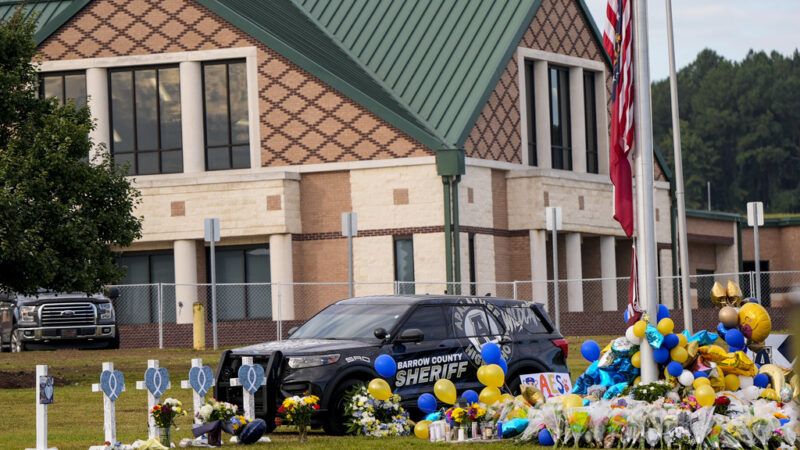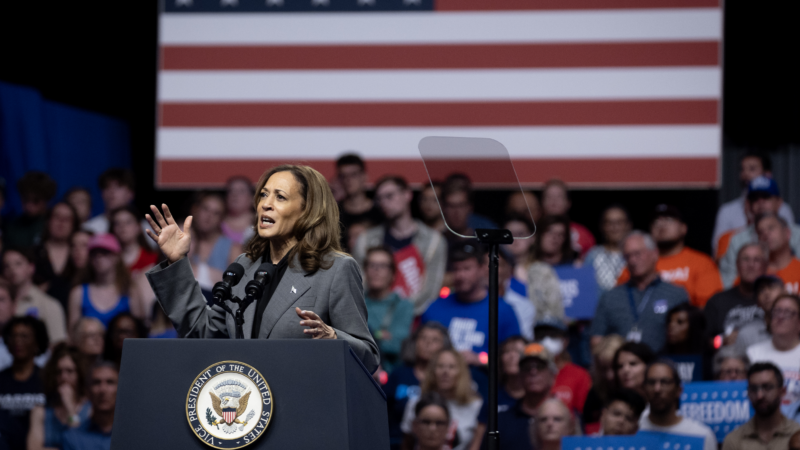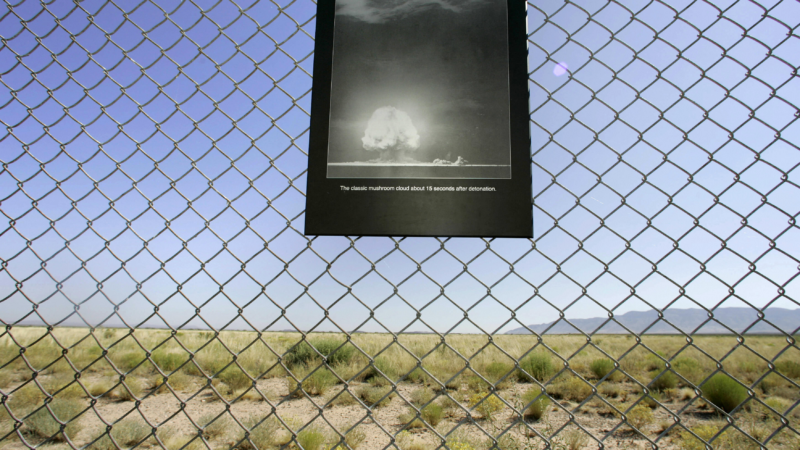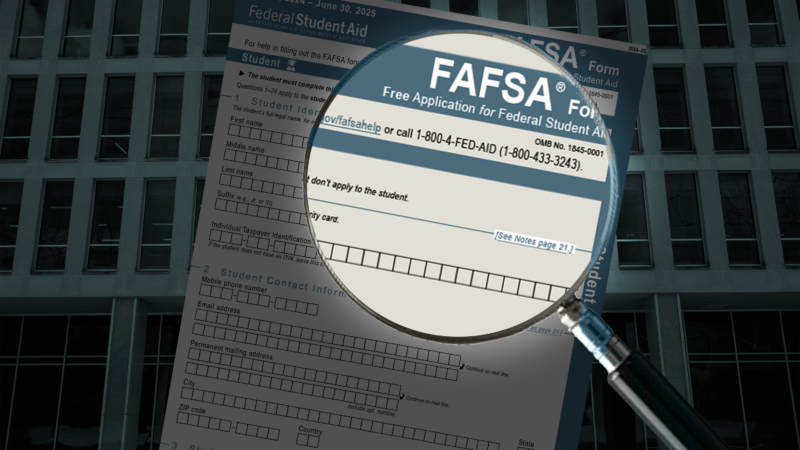Poll: Mass. voters split on psychedelics, tipped wages, but support auditing the Legislature
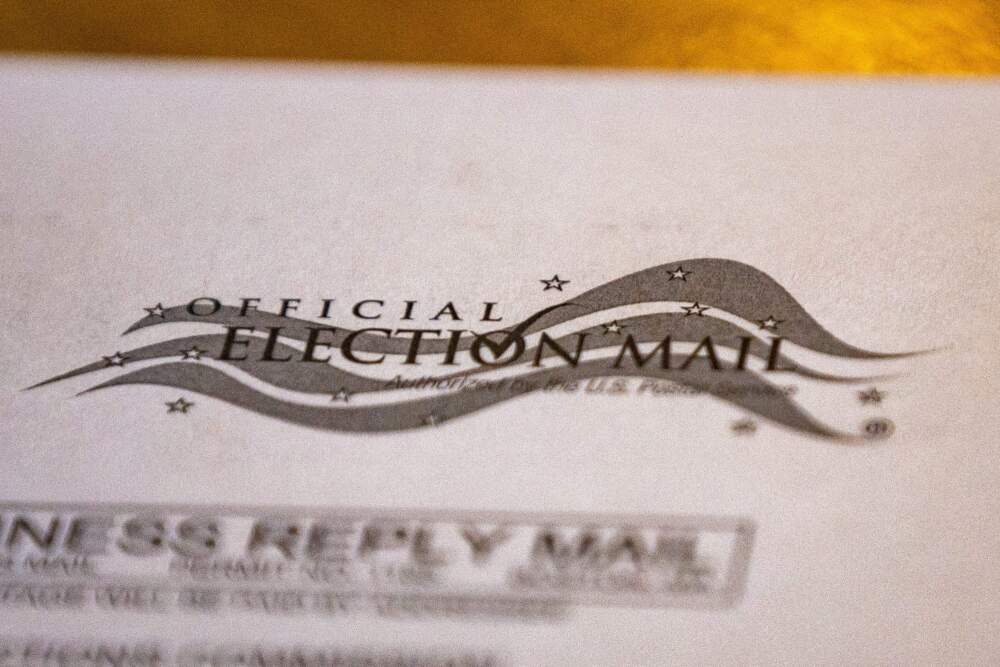
Massachusetts voters are juggling a lot of questions on this year’s ballot. And if a new WBUR poll is any indicator, things are still very much up in the air.
Most respondents said they want the state’s auditor to have authority to investigate the Legislature, and a slim majority want to scrap a standardized test as a high school graduation requirement. But voters are still mulling if tipped workers should receive the general minimum wage and if therapeutic psychedelics should be legal.
There are five questions on the ballot this fall — the most in Massachusetts since voters weighed in on a whopping eight initiatives in 2000.
The WBUR/CommonWealth Beacon poll of 800 likely voters (topline, crosstabs) was conducted Sept. 12 to 18, and has a margin of error of 4.1%. It was conducted by The MassINC Polling Group and supported with funding from the Knight Election Hub.
The poll did not ask about the initiative, which will be labeled Question 3 on the ballot, to grant network transportation workers like Uber and Lyft drivers the right to join a union.
Here’s a closer look at the polling on the ballot questions:
Question 1: Auditing the Legislature
When it comes to governance, respondents seemed to cling to the maxim “trust, but verify.”
Seventy percent of respondents said they supported Question 1, which would allow Massachusetts Auditor Diana DiZoglio to audit some functions and processes of the state Legislature. Just 8% of those polled opposed the measure, with 22% saying they didn’t know how they would vote, or refused to answer.
Republican and self-identified independent respondents were particularly keen for the audits — with more than 75% of both groups in support — and a majority of Democrats (58%) also said they would vote yes.
The question is the latest salvo between DiZoglio and both chambers of the General Court. The auditor had made examining the books inside the Legislature a signature campaign promise and tried to do so when she assumed office in 2023. But Senate President Karen Spilka and Speaker of the House Ron Mariano had other ideas, saying DiZoglio lacked constitutional authority for the audits. Attorney General Andrea Campbell agreed with the heads of the chambers.
The strong showing for the question fits in with some of the poll’s other findings, according to MassINC’s Senior Research Director Rich Parr.
“We asked folks, do you think that the state government operates in a way that is open and transparent or not? Forty-five percent said that that it does not. Thirty-six percent said that it does,” he said.
You can learn more about Question 1 here.
Question 2: MCAS and high school graduation
The decades-old high school graduation requirement may be on the ropes. Question 2 would end the use of the Massachusetts Comprehensive Assessment System (MCAS) as a stipulation for a diploma. More than half of respondents — 51% — said they would vote to scrap the requirement, while 34% said they would vote to keep things as they are.
The MCAS dates back to the Education Reform Bill of 1993, and was conceived as a way to measure school performance in educating students. Using the test to gauge students’ readiness for graduation came 10 years later, in 2003.
If the question passes and the graduation requirement is scrapped, kids would still have to pass necessary coursework in English, math and science — the subjects covered in the MCAS exams.
While more than half of respondents said they support the question, Parr said its passage is not a done deal as voters often lean back to “no” on ballot questions as election day nears.
“Being at a bare majority is a precarious place because very often what happens is that folks who are unsure about a ballot question will default to the ‘no’,” he said. “They’ll default to not making a change if they don’t feel like they fully understand the change that’s being put before them.”
You can learn more about Question 2 here.
Question 4: Legalizing therapeutic psychedelics
Voters seem split on Question 4, which asks whether the state should legalize some therapeutic uses of psychedelics and decriminalize possession and the growing of small amounts for home use. A narrow plurality — 44% — said yes, while 42% said no, putting the question will within the poll’s margin of error.
If passed, Question 4 would allow the supervised cultivation and use of plant-based psychedelics — think mushrooms and mescaline — by people 21 or older. It also establishes a commission to determine who gets to supervise these uses.
Massachusetts has been a leader in researching medical uses of psychedelics to treat depression and addiction. But opponents worry about the potential for a black market to form, especially since federal law still bans psychedelics.
While the results are almost evenly split, support for the measure waned among voters over 45 years old.
“It’s older voters who are a little less sold on this proposal than younger voters,” he said.
You can learn more about Question 4 here.
Question 5: Tipper worker minimum wage
Voters are still doing the math on how restaurant servers and other tipped workers are paid in Massachusetts. Just 43% of poll respondents said they’d vote yes on Question 5, which would raise the tipped workers minimum wage from $6.75 to match the general minimum wage of $15. Forty percent of respondents said they’d vote no, and another 16% said they weren’t sure or refused to answer the question.
If passed, Question 5 would increase the tipped minimum wage in stages through 2029. Once servers start earning the general minimum wage, restaurants and other businesses could then pool whatever tips their servers receive with the rest of non-management staff. Both proponents and opponents of the question point to data showing they represent the will of workers on the matter.
“It’s below that 50% mark and it’s certainly below where you might want it to be if you were hoping it to pass in the fall,” Parr said.
You can learn more about Question 5 here.
This article was originally published on WBUR.org.
GPB morning headlines for September 24, 2024
Students at Apalachee High School are set to return to class this morning for a half day, nearly three-weeks after a gunman killed two-students and two-teachers at the school in Northeast Georgia. The National Hurricane Center is issuing advisories on Potential Tropical Cyclone Nine, a disturbance located over the northwestern Caribbean Sea. A nonpartisan Black voting rights group held registration drives at three HBCUs in South Georgia last week.
Mueller investigator says Russia interfered in 2016 — and in the 2024 election too
Mueller deputy Aaron Zebley looks back on the investigation of Trump's ties to Russia and explains why his team didn’t indict the president in 2017. Zebley is the co-author of Interference.
Harris says she would support ending the filibuster to bring back Roe v. Wade
Harris said that as president she would support eliminating the filibuster in the U.S. Senate to bring back federal protections for a woman's right to an abortion.
Push for compensation for U.S. nuclear testing fallout resumes on Capitol Hill
Dozens of advocates are blanketing Capitol Hill this week to continue their push for Congress to revive a program that provided compensation for people suffering long-standing impacts from US nuclear testing programs.
Watchdog sheds light on FAFSA fiasco, from a birthday bug to call center failures
A new review and testimony from investigators with the U.S. Government Accountability Office offer the clearest picture yet of the aid form’s troubled rollout.
A boy snatched from a California park in 1951 is found living on the East Coast
Luis Armando Albino was lured away from a California park at the age of 6. He reunited with his biological family this summer after his niece found him through DNA testing and newspaper clippings.

